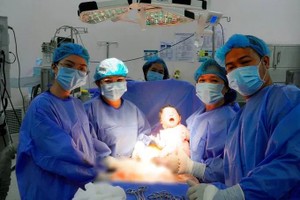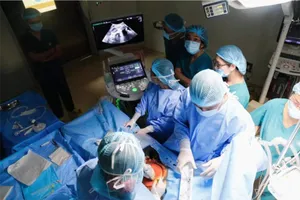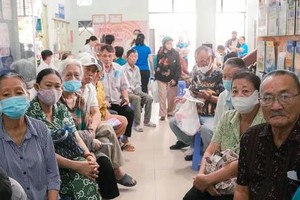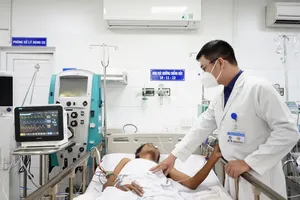At a meeting organised by the Ministry of Health on March 24, Deputy Prime Minister Nguyen Thien Nhan suggested that the National Tuberculosis Programme should focus on and give priority to the prevention of tuberculosis, so as to curb the disease.

The general meeting had been organised by the Ministry of Health to review the programme for the prevention and cure of tuberculosis for the period 2007-2011, as well as orient with new activities for the next phase.
Addressing the meeting, Nhan said the programme should focus on those areas that were the most severely affected, so as to curb the spread of the disease. Statistics brought out by the programme showed that 27 provinces in the country were concentrated with over 60 per cent tuberculosis patients.
Nhan applauded the achievements of the disease prevention programme during the last five years, in which it had succeeded in setting up special clinics for treatment of tuberculosis in all districts throughout the country.
Nhan said that control of tuberculosis has taken a long time in many countries across the world. However, under the National Tuberculosis Programme the number of patients had dropped in the last five years. He called for more cooperation from all sectors of society so as to tackle and eradicate the disease.
Another thing that needs to be done is that local governments should try and increase their annual expense budget for prevention of tuberculosis. In addition, the programme should pay more heed to raising awareness in society of the dangers of the disease, added Nhan.
Deputy PM Nhan also suggested that the programme should apply advanced but affordable techniques to treat the disease so as to reach out to the low income groups of people who are most vulnerable to infection.
He has asked the ministry and related agencies to review the strategy to prevent tuberculosis and its future applications till the year 2020, and submit a report to the Prime Minister by June.
Associate Professor Dinh Ngoc Sy, director of the National Lung Hospital and chairman of the National Tuberculosis Programme, said that the country is facing a shortage of human resource to deal with the disease in prisons because of low pay scale. High resistance to multi tuberculosis drugs is also on the rise due to ineffective marketing of tuberculosis medicines.
Medical workers located in remote districts are also not well-trained in tuberculosis prevention and treatment, and lab facilities in these areas are also non-existent, resulting in more people acquiring this contagious disease.
























